Colleen Frakes
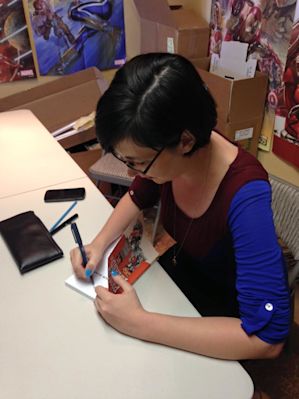
When we decided to focus on comics for our Spring newsletter, we began a search for a local cartoonist to help us with our cover. We asked around and Colleen Frakes' name kept popping up. She took take the story of Pagliacci co-owner Matt Galvin’s slow awakening to just how powerful comics have become as a cultural force and turned it into, well, a real comic.

Colleen is a Xeric and Ignatz award-winning Seattle cartoonist, and an acclaimed graphic novelist. Her most recent graphic novel, Prison Island, is an autobiographical story of her childhood growing up on McNeil Island, the last island prison accessible only by air or boat in the United States. Colleen lived on the island for ten formative years. Her mother and father worked at the prison. As a teen, she took a ferry to school alongside inmates heading to and from freedom. While the experience wasn’t typical of most childhoods—she had to leave the local park where she played whenever inmates came to clean it up—she grew fond of the beauty of the island.
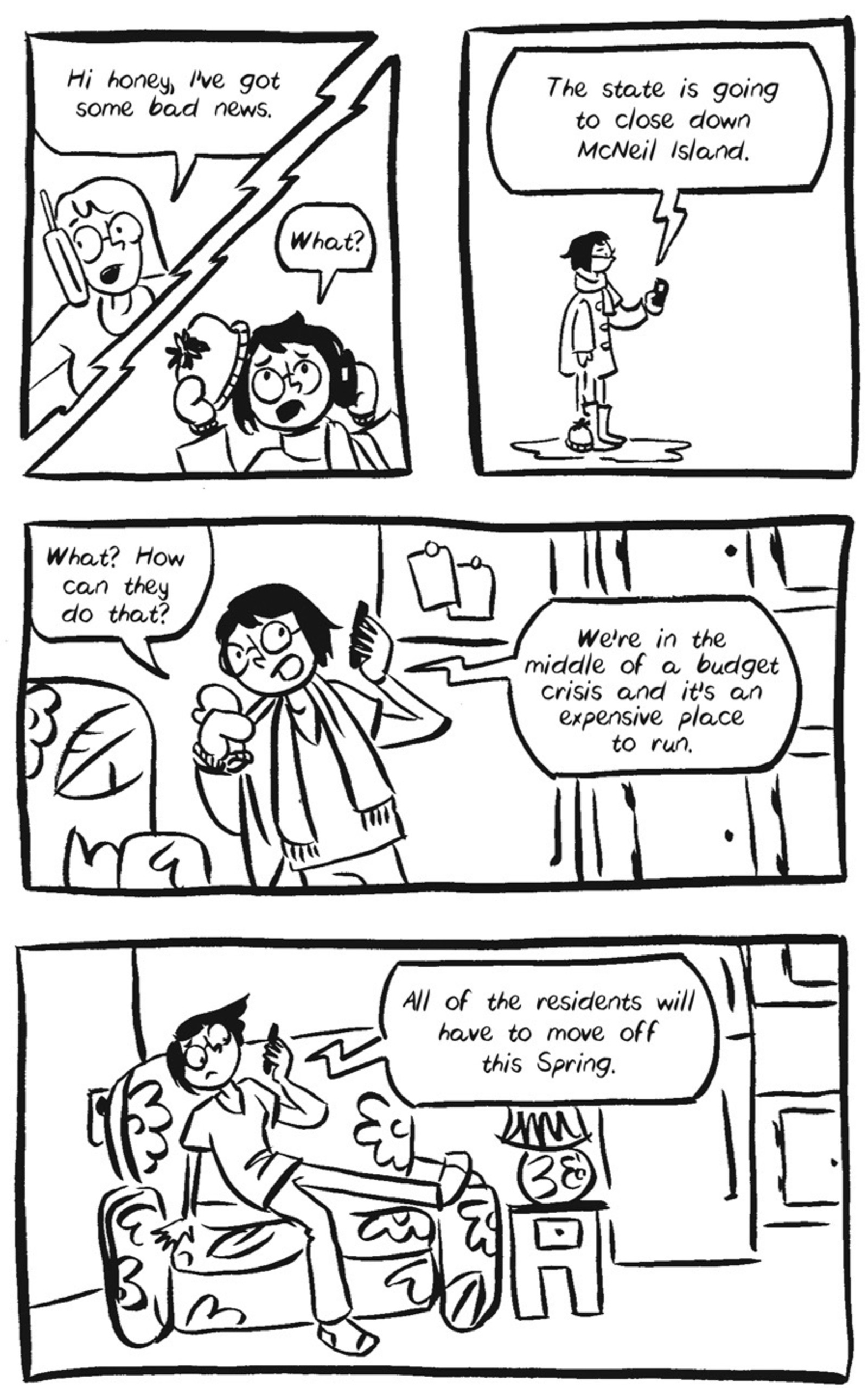
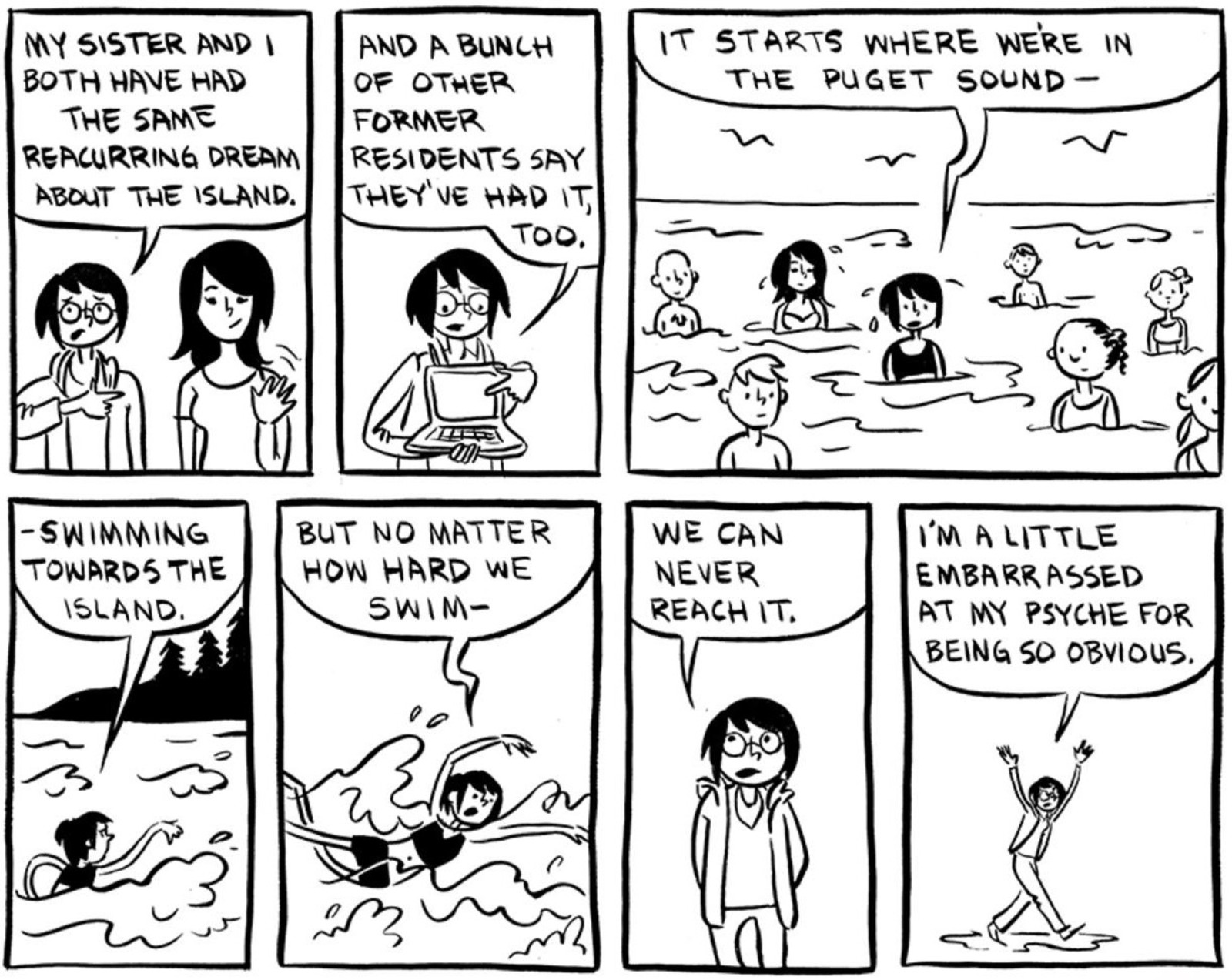
In 2011, Washington State closed down the McNeil Island Correctional Center. Running an island prison is expensive, and the facility was a victim of statewide budget cuts. Colleen received an invitation to attend the official closing ceremonies. At the time, she was living in White River Junction, Vermont where she had recently finished an MFA from The Center for Cartoon Studies. She was too broke to even think of going when a patron of the arts, Annie Koyama (also known as Kick-Ass Annie), of Koyama Press in Toronto, offered to cover travel expenses if Colleen would write about it. Eventually, Colleen turned the experience into the full-length graphic novel Prison Island.
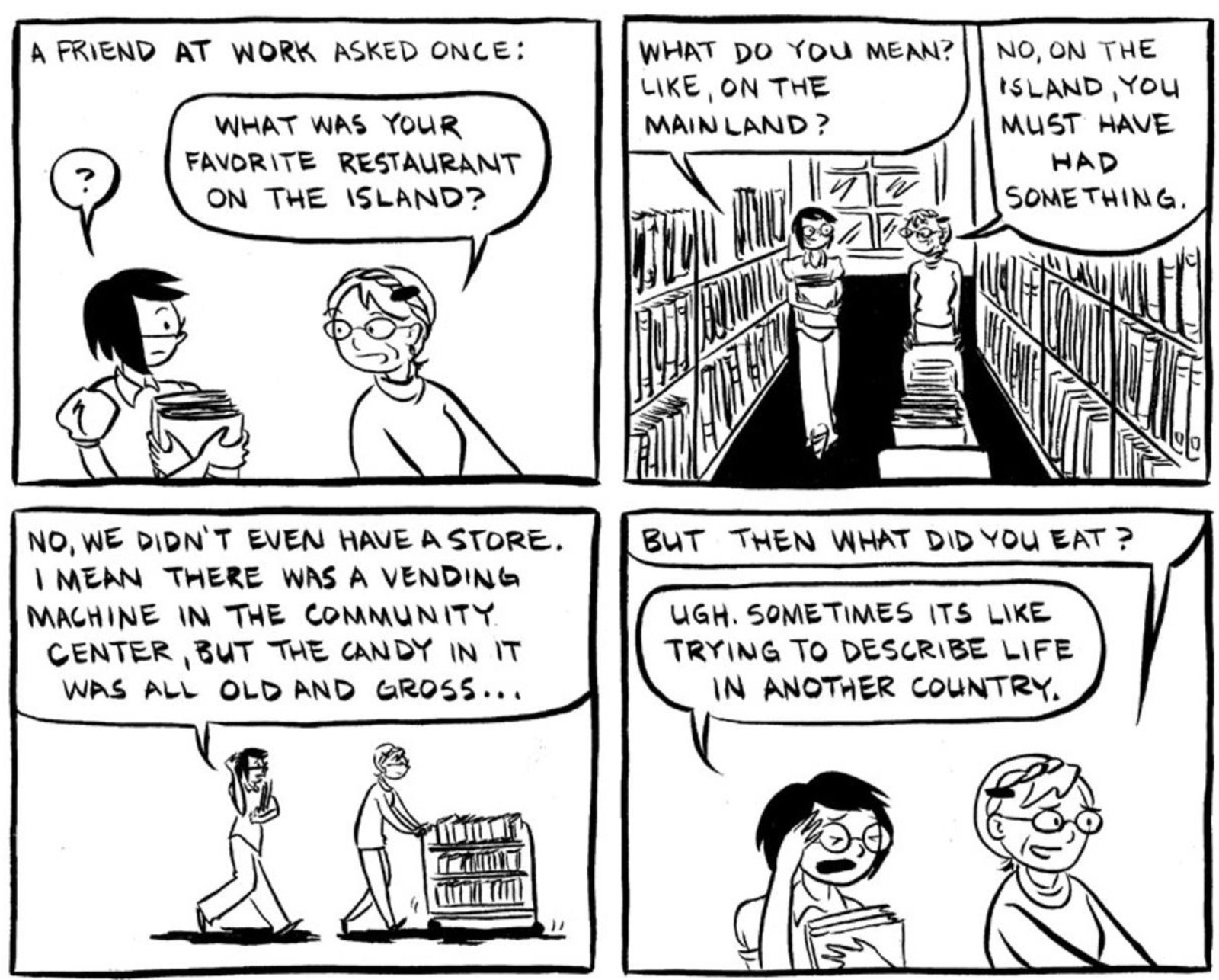
Colleen says, “I wish I could say that getting an invitation to the closing of my hometown was the weirdest things that ever happened to me, but I think that award would have to go to locking up my pool toys with a bike chain as a kid so that they couldn’t be used during an escape attempt.” In the book, she mixes her experience of returning to the island as an adult with flashbacks that allow you to feel what it was like to live there as a teenager.
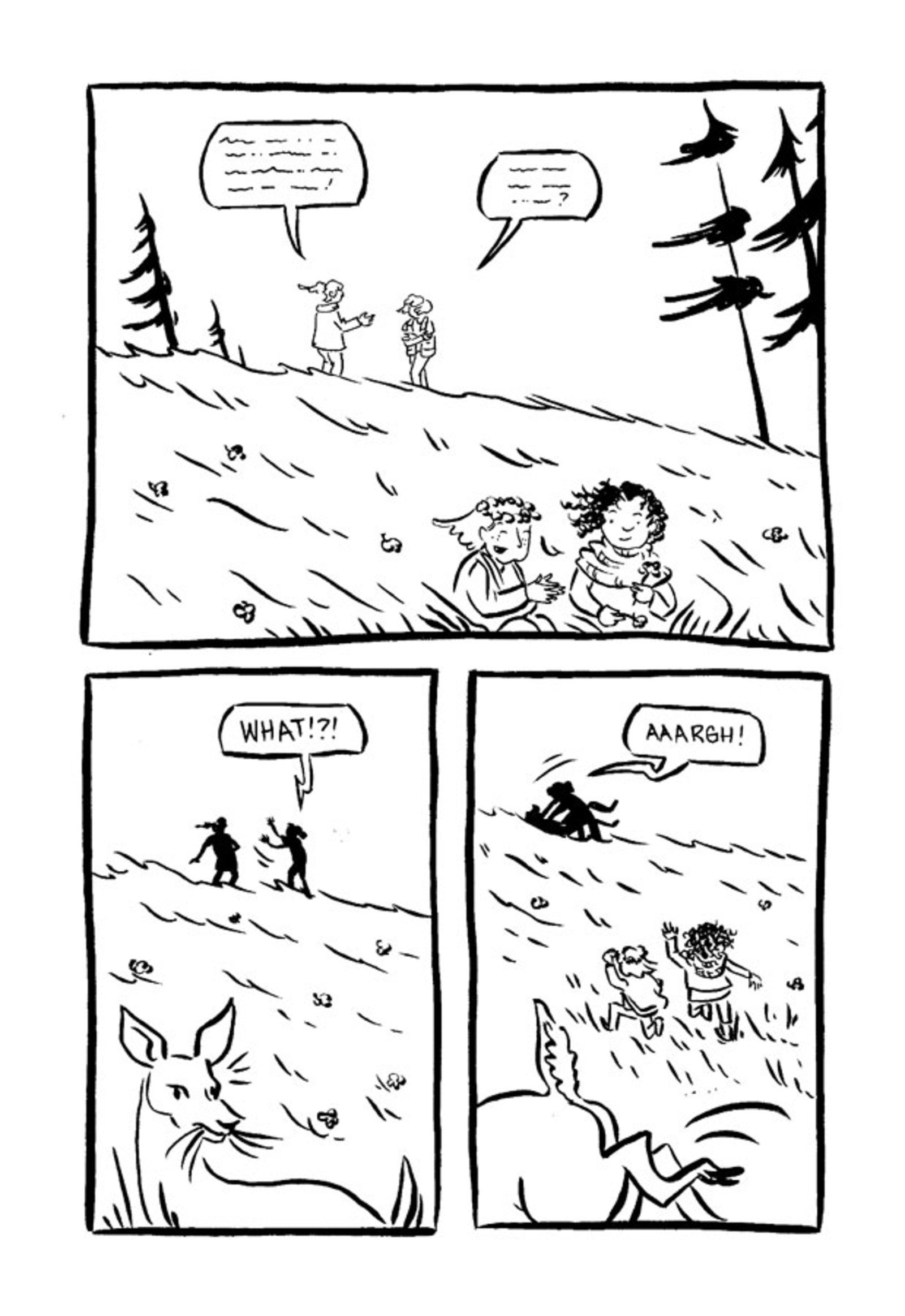
Pagliacci recently had the opportunity to ask Colleen a few questions.
How did Seattle become such a hotspot for cartooning?
Comics are everywhere! The Comics Reporter does a "Comics by Local Scene" report every couple of years, and it's hard to find an urban center that doesn't have a comics community anymore! Because comics can be a lonely pursuit, cartoonists tend to seek each other out. Seattle used to have the advantage of cheaper rents (though this is rapidly changing), but there's still Fantagraphics, and events like Short Run and Dune help to get cartoonists away from their drawing tables and out into the world.
Your favorite bookstore? Best place to buy/browse graphic novels?
My favorite bookstores are Elliot Bay for new books, and the Tacoma Book Center for used books (it's fun to get lost in). I get most of my single-issue comics from Phoenix Comics and Games on Broadway, but for browsing graphic novels it's worth a trip to the Fantagraphics Bookstore and Gallery in Georgetown.
What are you working on now?
I have a webcomic called Skookum that I update M-W-F. It's about a group of kids living in a small PNW island community (loosely based on my own life) who get caught up in a fight between witches and faeries (not based on my life). I'm also working on a short story for "The Shirley Jackson Project: Comics Inspired by Her Life and Work," edited by Rob Kirby.
How do you balance paid work with your writing life? When do you write?
I'm one of those bad cartoonists who doesn't write or thumbnail but instead goes straight to the drawing stage. Sometimes it works out, sometimes I end up redrawing half the story later. I "write" in my head, usually while walking or in the shower.
Did you study cartooning/drawing?
Yup! I did an independent study in cartooning while earning my bachelor's degree at The Evergreen State College and went on to earn an MFA from The Center for Cartoon Studies in Vermont.
Are there illustrators who have been influential? Storytellers (including non-graphic artists)? Who are some of your favorite graphic novelists? Which graphic novels have influenced you the most?
My biggest influences are Lynda Barry, Linda Medley, Lydia Davis, Holly Black, Raymond Peynet and Tumblr. Most of my stories tend to be loosely based on fairy tales or world folklore.
What compels you to tell your story/stories in the graphic novel form? Do you also write narrative prose?
I started out as a playwright. When I was in high school, Tacoma had all these great opportunities for young playwrights that don't seem to exist anymore. But I got tired of working with other people and the compromises that come with collaboration. With comics, I get to control every part of the story. And there's no worry about budget because it's all just ink on paper.
I still write some prose, usually short-short stories. It's physically easier than comics, but it's more difficult for me to get into that headspace.
Favorite hobbies that don’t include drawing or writing.
This is tough since writing and drawing take up so much time :) I have a full-time job, I read, I've been playing a lot of Fallout 4 and Dragon Age when I should be drawing...that's about it!
Do you have a day job to supplement your income as a writer?
I do! My day job is at a library, which is great because I have access to all the books and research materials I could ever want. And there's a fair amount of down time at the Circulation Desk, where I can answer emails and take care of internet business.
Am image from Skookum, Colleen Frakes Webcomic.

